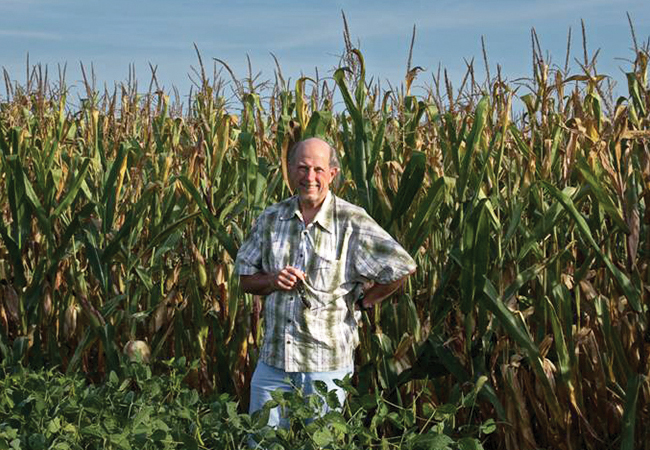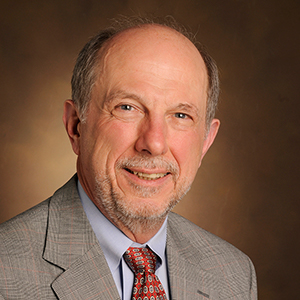Just a kid from the farm
I’m not sure I really qualify to contribute here. I had good parents, a happy childhood and no real setbacks. However, the world I live in today is very different from the one I grew up in. I did not even know people lived like I do now, flying around to talk at meetings, etc.
 My father came to the United States from Bavaria as a boy, with his family, in 1913. My grandfather, a common laborer in Germany who had to borrow money from relatives for the trip, found work as a hired hand for farmers. My father had to start school over, because he knew no English, and did not even attend high school. My father and my grandparents worked hard and were able to rent land and start farming themselves. Eventually my father, at the age of 50, began to buy a farm of his own.
My father came to the United States from Bavaria as a boy, with his family, in 1913. My grandfather, a common laborer in Germany who had to borrow money from relatives for the trip, found work as a hired hand for farmers. My father had to start school over, because he knew no English, and did not even attend high school. My father and my grandparents worked hard and were able to rent land and start farming themselves. Eventually my father, at the age of 50, began to buy a farm of his own.I would not describe my family as poor, although my parents were very frugal and strived to fulfill the adage that farmers “live poor and die rich.” Dad had dairy cattle, which had to be milked twice a day, and we had no hired help. I remember him working all the time, and there were no vacations or even weekends off.
When I was 10, Dad told me one night that he thought I was old enough to drive a tractor. He gave me an operating manual, told me to learn the gearshift pattern and said that he would show me how the next day. At the age of 12, I also could drive a truck. By then I was raising cattle of my own.
Every morning and evening was devoted to taking care of cows; Saturdays were all field or barn work; and summer meant baling hay, cultivating corn, combining wheat, and so on. In central Illinois, it was cold in the winter and hot in the summer.
The public schools I went to were pretty decent, in retrospect. I found I could excel in class, and my parents probably were surprised and pleased. I probably could have done better had I applied myself; I was really uncertain about how good I was. To be honest, I found many of the things we did — welding, plowing, raising cattle — more interesting than the majority of the high-school courses. However, I was really excited about chemistry, in particular, and many of the aspects of math.
I began to realize that my father’s farm was not going to be big enough to be self-supporting in the future, with economic pressures, so I needed to think about borrowing a lot of money to expand or doing something else. I thought about being a veterinarian but never followed through (with the lousy surgical skills I found I had later in life, that was probably good for the animals). Taking the advice of one of my high-school teachers, I enrolled in the food technology program at the University of Illinois. I liked the chemistry courses and was making excellent grades overall, but after a year I decided that I would be bored to death if I remained in food science. I considered nutritional science, which seemed like a better idea at the time. During the summer after my sophomore year, I met professor Harry Broquist and got into biochemistry, working in his lab as a National Science Foundation fellow for two summers. Once I found how exciting biochemistry was, I never looked back. My relationship with Broquist was to last for the next 42 years, until his death.
I graduated from Illinois with high honors, got a Ph.D. in biochemistry (with Broquist) at Vanderbilt University, did a postdoc with Jud Coon at the University of Michigan and was an assistant professor at Vanderbilt at 26. I was surprised that the faculty had been impressed enough with me as a grad student to give me a job. At the ripe old age of 34, I was a full professor in an excellent biochemistry department. Over the years, I have traveled all over the world, published a lot of papers, and trained an army of students and postdocs. I get to do fun things and am even paid for it. But I never forgot where I came from.
Due to my limited interest in English courses and the like as a young man, it took me a long time to learn to write the way a biochemist really should. Coon really emphasized writing, and I thank him for that. I have to admit that I learned a lot of what I know from reading and from the “feel” of what sounds good, but I did go on to become an associate editor at the Journal of Biological Chemistry (and now criticize others).
Did I succeed in spite of my background? No. I’d rather think that any success I’ve had was because of it. Following old habits, I still arrive in the lab early (it beats dealing with cows at that hour), and I work on weekends. I am mechanically inclined and fix equipment myself when I can — just like farmers do. I watch our money and try to use it wisely. When I started my independent career, I resolved that if I did not succeed it would not be due to lack of effort. I do not believe anyone has ever questioned my work ethic or my penchant for organization. These are things I learned on the farm.
As a postscript, today my sister and I own the farm, and I actively manage it. I still have an affinity with the farmers, and I think many people could learn something from them — even professors.
Enjoy reading ASBMB Today?
Become a member to receive the print edition four times a year and the digital edition monthly.
Learn moreGet the latest from ASBMB Today
Enter your email address, and we’ll send you a weekly email with recent articles, interviews and more.
Latest in Opinions
Opinions highlights or most popular articles

Sketching, scribbling and scicomm
Graduate student Ari Paiz describes how her love of science and art blend to make her an effective science communicator.

Embrace your neurodivergence and flourish in college
This guide offers practical advice on setting yourself up for success — learn how to leverage campus resources, work with professors and embrace your strengths.

Survival tools for a neurodivergent brain in academia
Working in academia is hard, and being neurodivergent makes it harder. Here are a few tools that may help, from a Ph.D. student with ADHD.

Hidden strengths of an autistic scientist
Navigating the world of scientific research as an autistic scientist comes with unique challenges —microaggressions, communication hurdles and the constant pressure to conform to social norms, postbaccalaureate student Taylor Stolberg writes.

Black excellence in biotech: Shaping the future of an industry
This Black History Month, we highlight the impact of DEI initiatives, trailblazing scientists and industry leaders working to create a more inclusive and scientific community. Discover how you can be part of the movement.

Attend ASBMB’s career and education fair
Attending the ASBMB career and education fair is a great way to explore new opportunities, make valuable connections and gain insights into potential career paths.

